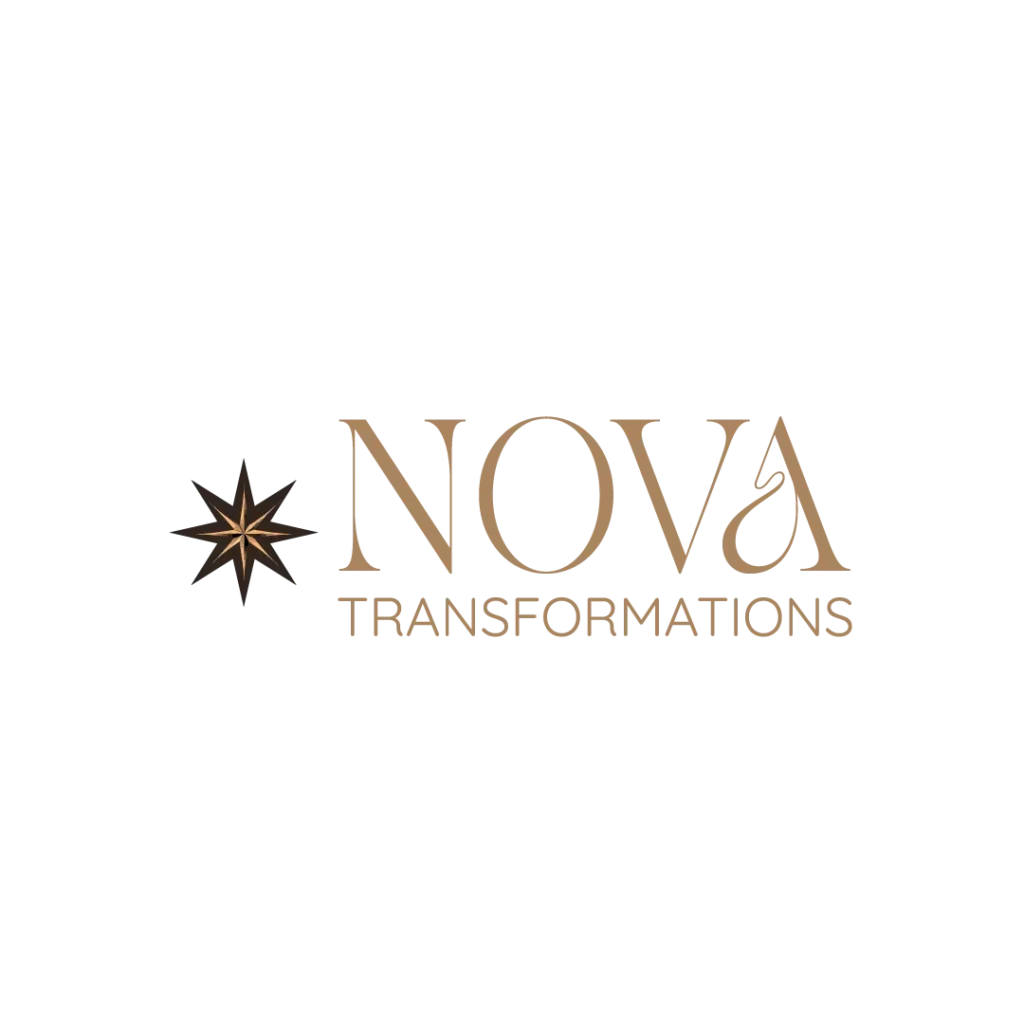The Power of Therapies in Addiction Treatment
Therapy plays a pivotal role in the recovery journey for those struggling with alcohol addiction. Various therapies can effectively address the psychological aspects of addiction, enhance engagement in treatment, and promote long-term recovery outcomes.
Types of Behavioral Therapies
Behavioral therapies are particularly effective in treating alcohol addiction. Three prominent types include:
-
Cognitive Behavioral Therapy (CBT): CBT focuses on identifying and changing negative thought patterns that contribute to substance use. This approach teaches individuals coping strategies and skills to manage their triggers effectively. Studies indicate that CBT produces lasting benefits, continuing even after the formal treatment phase (Alcohol.org).
-
Motivational Interviewing (MI): MI encourages individuals to explore and resolve their ambivalence toward change. This client-centered approach enhances a person’s motivation to participate in treatment and commit to recovery.
-
Contingency Management: This method provides positive reinforcement for achieving sobriety milestones, promoting sustained engagement in treatment.
These therapies can be particularly beneficial for individuals facing co-occurring disorders, helping to target both substance use and mental health issues effectively. Behavioral therapies have shown efficacy in treating comorbidity between substance use and mood disorders, enhancing treatment compliance and preventing relapse (PMC).
Efficacy of Behavioral Therapies
The success rate of behavioral therapies in addiction treatment is substantial. Research has demonstrated that these approaches can significantly enhance treatment engagement, improve compliance with medication regimens, and reduce substance use.
| Therapy Type | Effectiveness | Target Areas |
|---|---|---|
| Cognitive Behavioral Therapy | High | Thought patterns, coping strategies |
| Motivational Interviewing | Moderate to High | Client motivation, ambivalence resolution |
| Contingency Management | High | Reinforcement, treatment compliance |
Behavioral therapies serve as a foundational component of treatment plans at Nova Transformations, where evidence-based approaches are used to facilitate recovery from alcohol addiction. For those seeking substance abuse treatment, integrating these therapeutic approaches into your recovery process can lead to more successful outcomes. If you’re looking for more information about various treatment options, visit our resources on alcohol rehab or therapy for drug addiction.
Key Considerations in Substance Use Treatment
Understanding the complexities of substance use treatment is essential for both individuals seeking help and their loved ones. Several factors can influence the effectiveness and accessibility of therapy for alcohol addiction. Below are key considerations to take into account.
Co-Occurring Disorders
Many individuals who struggle with alcohol addiction also face co-occurring disorders such as depression or bipolar disorders. Behavioral therapies have shown efficacy in treating these comorbidities, which can complicate treatment. Studies indicate that people with both substance use and mood disorders are at a higher risk of poor outcomes compared to those with single disorders. Effective treatment for these individuals involves targeting substance use, addressing affective disorders, and encouraging engagement in therapy (co-occurring disorders treatment). This dual approach not only improves compliance with pharmacotherapy but also helps prevent relapse and disengagement from the treatment process.
Treatment Utilization Barriers
Access to necessary treatment can be hampered by a variety of barriers. Many people may not pursue help due to perceived stigma associated with addiction or a lack of understanding of available treatment options. Moreover, behavioral therapies can be burdensome without the right support structures in place. Some individuals may not fully engage in therapy due to these barriers, which can ultimately lead to poor treatment outcomes.
Financial and Geographic Limitations
Financial constraints pose a significant barrier to receiving addiction treatment. In 2022, 25.6 million people aged 0–64 did not have health insurance, despite 73.3% of them living in households with full-time workers. Limited insurance coverage often results in individuals being unable to afford necessary treatments, particularly medication-assisted treatment (MAT) for opioid addiction. Furthermore, geographic factors heavily influence access to treatment resources. Rehabilitation programs tend to be densely concentrated in high-population states, leaving those in rural areas with limited options. This geographical imbalance can make it particularly challenging for individuals living outside urban centers to find the assistance they need.
| Barrier Type | Impact Details |
|---|---|
| Financial Limitations | Millions lack health insurance; affordability issues lead to untreated addiction. |
| Geographic Limitations | Concentration of services in populated areas limits access for rural residents. |
| Perceived Need | Stigma around addiction may prevent individuals from seeking help. |
By addressing these considerations, you can better understand the landscape of addiction treatment and how facilities like Nova Transformations offer comprehensive support through their detox and rehab programs. Prioritizing these factors enhances the likelihood of successful recovery and provides you or your loved ones with the right tools for healing. For more structured approaches to therapy, consider exploring intensive outpatient programs or medication-assisted treatment options.
Innovative Approaches in Treatment
When it comes to choosing effective options for therapy for alcohol addiction, consider the innovative approaches that have demonstrated success in the treatment process. These methods include Medication-Assisted Treatment (MAT), Yoga and Meditation, and Family Therapy.
Medication-Assisted Treatment (MAT)
Medication-Assisted Treatment (MAT) combines behavioral therapies and medications to provide a comprehensive approach to treating substance use disorders, including alcohol dependence. According to research, MAT for alcohol-dependent adults with serious mental illness showed significant improvements in clinical outcomes over a 12-month period. This includes reductions in mental health hospitalizations, emergency department visits, and enhanced adherence to psychotropic medications (NCBI).
MAT can be particularly beneficial for individuals facing barriers to recovery, as it provides support in managing withdrawal symptoms and cravings. Understanding that many insurance plans pose challenges in covering MAT for opioid addiction is essential. Medicaid does cover medications for substance use disorders, yet limitations can vary significantly by state (American Addiction Centers).
| Key Benefits of MAT | Potential Challenges |
|---|---|
| Reduces withdrawal symptoms | Limited insurance coverage |
| Decreases cravings | State-imposed limitations |
| Improves treatment outcomes | Accessibility issues |
Yoga and Meditation
Incorporating Yoga and Meditation into addiction treatment fosters holistic healing and personal growth. These practices encourage mindfulness and stress reduction, which can enhance emotional regulation and resilience against triggers. Participants often report improvements in mood, reduced anxiety, and overall well-being.
Engaging in Yoga can also lead to physical benefits, including improved flexibility and strength, while meditation provides mental clarity and relaxation. Implementing these practices into your recovery plan may promote a beneficial lifestyle change and support the journey toward sobriety. For more information on how these can be integrated in treatment, visit our page on yoga in rehab.
Family Therapy
Family Therapy plays a critical role in addressing addiction as it recognizes the impact of substance use on the entire family system. This therapeutic approach facilitates communication and strengthens relationships among family members.
Research indicates that Family Therapy effectively addresses addiction and related issues, such as employment, parenting, and behavioral concerns. It’s essential to involve loved ones in the recovery process, as their support can significantly influence the success of treatment (Alcohol.org).
| Benefits of Family Therapy | Areas Addressed |
|---|---|
| Improves family dynamics | Communication skills |
| Enhances support networks | Parenting and behavioral issues |
| Reduces feelings of isolation | Relationship concerns |
By exploring these innovative approaches, you can find methods that resonate with you or your loved ones. Effective treatment for alcohol addiction often requires a multifaceted approach, and integrating options like MAT, yoga, meditation, and family therapy can lead to a more successful recovery journey. For additional resources, check out our substance abuse intensive outpatient program.
Overcoming Barriers to Alcohol Treatment
Addressing the challenges in accessing and utilizing therapy for alcohol addiction is essential for supporting individuals in their recovery journey.
Access and Perceived Need
Access to treatment is often hampered by the perception of need for alcohol treatment. Although many individuals recognize their need for support, only 15-30% of people with a perceived need for treatment for alcohol use disorder actually receive it (Recovery Answers). This gap can arise from various factors including lack of awareness, stigma, and logistical barriers, such as transportation or availability of services.
To improve treatment access, it’s crucial to enhance public awareness about the importance of seeking help and the resources available, such as alcohol rehab programs.
Attitudinal Barriers
Attitudinal barriers also play a significant role in deterring individuals from seeking help. Many people may believe that the problem can resolve itself or feel that they should be strong enough to handle it alone. Overcoming these misconceptions is vital for improving treatment utilization. Understanding these barriers can help design better screening and treatment interventions. Awareness campaigns and educational resources can provide insight into the nature of alcoholism and the benefits of professional support (Recovery Answers).
Integrated Care Solutions
Integrated care solutions are essential for individuals dealing with co-occurring disorders, where mental health and substance use disorders are treated simultaneously. This holistic approach can significantly improve health outcomes by providing comprehensive support tailored to individuals’ complex needs (SAMHSA).
At Nova Transformations, our programs encompass ideas of integrated care by ensuring that treatment strategies are multifaceted. This approach not only addresses alcohol dependency but also provides assistance for any underlying mental health issues. If you want to learn more about the pathways available, explore our various programs, including dual diagnosis treatment and specific rehab options catered to different substances, like heroin rehab and opioid rehab.
By recognizing and addressing these barriers head-on, you can take significant steps toward recovery for yourself or a loved one.
Effective Therapies for Alcoholism
When considering therapy for alcohol addiction, it’s important to understand the various therapeutic approaches available. Each method addresses the unique challenges of alcoholism and can be tailored to individual needs. Here are three effective therapies commonly used in treatment:
Cognitive Behavioral Therapy (CBT)
Cognitive Behavioral Therapy (CBT) is a well-established method for treating alcoholism. This therapy focuses on identifying negative thoughts and behaviors and replacing them with positive ones. CBT is solutions-oriented and can be effective in as few as five sessions, making it an efficient option for many individuals seeking recovery Alcohol Help.
| Key Features of CBT | Description |
|---|---|
| Focus | Identifying negative thoughts and behaviors |
| Duration | Effective in as few as 5 sessions |
| Approach | Solutions-oriented |
Dialectical Behavioral Therapy (DBT)
Dialectical Behavioral Therapy (DBT) is another evidence-based approach that helps individuals struggling with alcoholism. DBT incorporates techniques such as Core Mindfulness, Distress Tolerance, Interpersonal Effectiveness, and Emotion Regulation. By focusing on living in the present and managing emotions, DBT encourages positive change, making it a suitable choice for those seeking to overcome addiction Alcohol Help.
| Key Features of DBT | Description |
|---|---|
| Core Components | Mindfulness, Distress Tolerance, Interpersonal Effectiveness, Emotion Regulation |
| Focus | Present living and emotional management |
| Goal | Embracing positive change |
Motivational Interviewing
Motivational Interviewing is a brief, client-centered method aimed at encouraging individuals to overcome ambivalence and set self-improvement goals. This approach enhances the client’s motivation for change, making it beneficial for those dealing with substance abuse disorders. By fostering a collaborative relationship, Motivational Interviewing helps individuals commit to their recovery journey Alcohol Help.
| Key Features of Motivational Interviewing | Description |
|---|---|
| Method | Client-centered and brief |
| Focus | Encouraging self-improvement goals |
| Benefit | Enhanced motivation for change |
Each of these therapies can be valuable tools in your journey towards recovery. At Nova Transformations, we offer comprehensive addiction treatment programs, leveraging these proven methods to support your healing process. For more information on tailored rehabilitation options, feel free to explore our alcohol rehab programs and see how we can assist you or your loved ones in overcoming alcohol addiction.
Enhancing Treatment Outcomes
To achieve successful recovery from alcohol addiction, a multifaceted approach is necessary. Incorporating FDA-approved medications, mutual support groups, and understanding the various levels of care can significantly enhance treatment outcomes.
FDA-Approved Medications
Using FDA-approved medications for Alcohol Use Disorder (AUD) can be a critical component of your treatment plan. Three primary medications are effective in promoting abstinence and reducing cravings:
| Medication | Purpose |
|---|---|
| Acamprosate | Helps decrease cravings and stabilizes mood |
| Naltrexone | Reduces the pleasurable effects of alcohol |
| Disulfiram | Creates an unpleasant reaction to alcohol |
Research indicates that these medications are underutilized, with only 1.6% of adults with past-year AUD receiving prescriptions as of 2021 (NIAAA). Licensed therapists can prescribe these non-addictive medications without requiring specialized training, making them accessible in various care settings. Integrating medication alongside therapy for alcohol addiction has shown to help establish a solid foundation for recovery.
Mutual Support Groups
Mutual support groups play a vital role in your journey toward recovery. Groups like Alcoholics Anonymous (AA), SMART Recovery, LifeRing, Women for Sobriety, and Secular Organizations for Sobriety provide supportive environments where individuals can share their experiences and help each other stay accountable. Engaging actively with these groups enhances recovery outcomes and promotes lasting sobriety.
Research supports that both spiritual and secular groups can effectively aid individuals in their abstinence goals, making mutual support a valuable resource in your treatment for alcohol addiction (NIAAA).
Levels of Care for AUD Treatment
Understanding the different levels of care available for Alcohol Use Disorder can help you choose the most suitable path for recovery. Here are the main types of treatment settings:
| Level of Care | Description |
|---|---|
| Inpatient Rehab | Provides intensive care in a live-in facility for severe cases |
| Residential Rehab | Offers a supportive environment while maintaining a structured program |
| Intensive Outpatient Program (IOP) | Balances therapy and everyday life with regular counseling sessions |
| Partial Hospitalization Program (PHP) | Provides more intensive treatment than IOP, including medical care during the day without overnight stays |
| Outpatient Drug Rehab Programs | Flexibility to attend therapy while living at home |
Each level of care has its benefits and can be tailored to fit your specific needs. By choosing the appropriate treatment setting, you can ensure that you receive the right support for a sustainable recovery.
Explore these options through programs like alcohol rehab and discover how Nova Transformations can help you or a loved one by providing comprehensive treatment solutions for addiction.








